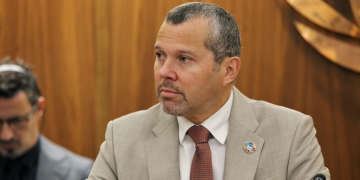Politicians, industry stakeholders and maritime Flagship Projects agree on the need to focus on cross-sectorial cooperation, education and training, as well as enforcement of regulations, to turn the region into a leading clean and safe shipping region. This was the outcome of a seminar held in Brussels, on 30 May, under the EU Strategy for the Baltic Sea Region.
At the meeting, organised by the Danish Maritime Authority and the Finnish Transport Safety Agency (Trafi), representatives from the European Commission, the European Parliament, the maritime industry and maritime Flagship Projects discussed the potentials and future priorities for maritime safety and security and clean shipping in the Baltic Sea Region.
- Cooperation : All panellists highlighted the need of transnational cooperation, in order to make the Baltic Sea Region a global frontrunner in terms of clean and safe shipping. Already now, the region has strong competences in the maritime field, but cross-sectorial cooperation is needed to strengthen its position.
- Enforcement in focus: In a region under great pressure from environmental regulation, it is necessary to focus on enforcement of existing regulations rather than on the adoption of new rules, a panel debate pointed out.
- Improving maritime education and training to meet the demands of tomorrow: Another important problem which was stressed by several speakers during the event was the need to maintain and develop high-quality maritime education and training institutions around the Baltic Sea. The competitiveness of the region’s global maritime industry depends on the ability to supply a highly skilled maritime workforce. A workforce capable of coping with a future where digital solutions and autonomy are likely to play a more prominent role than is the case today. E-Navigation and digital solutions are already high on the region’s agenda and they have a great potential for securing increased efficiency and safety in the maritime industry. These projects may also help minimise the environmental impact of shipping on the delicate ecosystem of the Baltic Sea.

The EU Strategy for the Baltic Sea Region (EUSBSR) was adopted by the European Council in October 2009 and is Europe’s first macro-regional strategy. The Strategy aims at reinforcing cooperation and actions within the Baltic Sea Region, in order to meet major challenges by working together, as well as promoting a balanced development in the area. The Strategy is divided into several policy areas, among those PA Safe and PA Ship.



























































